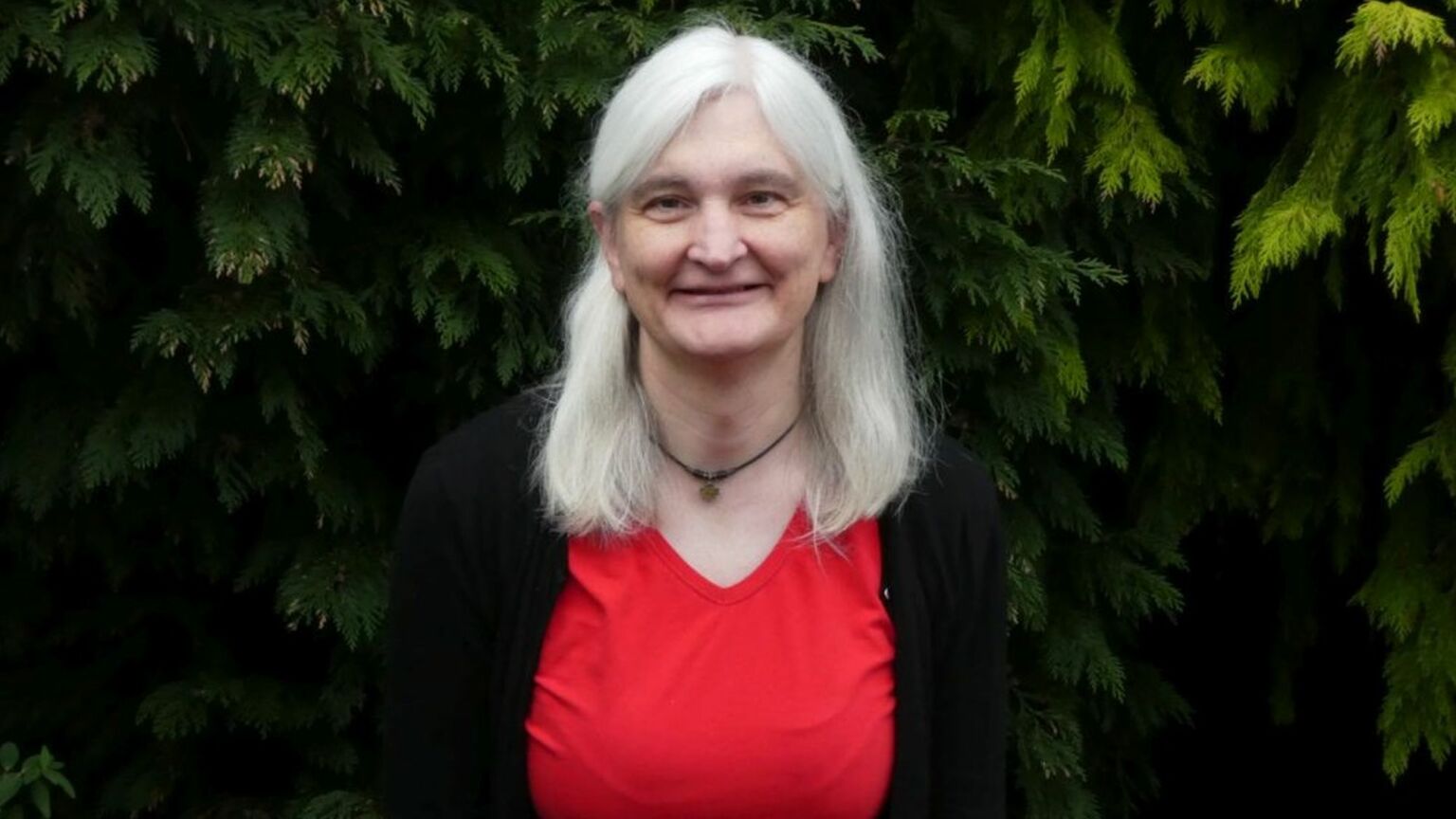‘Self-ID has been a complete disaster’
Debbie Hayton on why gender ideology harms trans people, too.

Want unlimited, ad-free access? Become a spiked supporter.
The trans-rights movement is often presented as the civil-rights cause of our times. We are told that policies like gender self-identification will liberate trans people, letting them live as their ‘true selves’, free from judgement and oppression. But not all trans people agree. Debbie Hayton – a transsexual writer and author of Transsexual Apostate: My Journey Back to Reality – has long campaigned against self-ID and has sharply criticised the direction of the trans lobby. This is a movement, Hayton says, that not only harms women and children – it is also hurting trans people.
Debbie recently joined Brendan O’Neill on his podcast, The Brendan O’Neill Show. What follows is an edited extract from their conversation. Listen to the full thing here.
Brendan O’Neill: What has the push for gender self-identification meant for trans people?
Debbie Hayton: Gender self-identification blew everything up. Before, it could be argued that the law was simply in line with the way that people actually interacted with each other. In the early days, a transsexual person would go to Casablanca to have all the surgeries. Then they would largely be perceived by everyone as the opposite sex when they returned. The law caught up with this attitude to some extent. It was seen as absurd to treat transsexuals as their birth sex for all purposes.
This whole arrangement sort of worked. But self-ID swept that away. It undermined the way in which the law was reflecting actual social attitudes towards transsexuals. Self-ID is based on the idea that the law should revolve around how a person perceives themselves. If a man says he’s a woman, then he must really be a woman, according to this logic.
When I first started campaigning against self-ID in 2016, it was not principally to defend women’s rights or to protect children. It was actually to defend the rights of transsexuals. I knew exactly how the law worked. I could see that this change would give any man the option to say that he is a woman. And the rest of society would then have to accept that.
As I argued at the time, if the law doesn’t put in sufficient safeguards for women, then informal barriers will be put up – and those barriers will quickly become less sympathetic to transsexuals than the law originally was.
It’s quite clear that if you allow anybody to identify as a woman and inherit the rights of women, this won’t just apply to transsexuals. You’re also going to open that up to anybody – including people on the lookout for safeguarding weaknesses and loopholes. It stands to reason that if you take away safeguards, bad actors will naturally be attracted to transgenderism.
Unfortunately, that’s exactly what we’ve seen happen. It’s why ‘Isla Bryson’, a convicted male rapist, was allowed into a women’s prison in Scotland. It’s why Barbie Kardashian, another violent rapist, was placed in a women’s prison in Ireland. Self-ID has been a complete and utter disaster for everyone.
O’Neill: How do you explain the capture of the political establishment by this ideology?
Hayton: Our politicians have completely abdicated responsibility. They are obsessed with being ‘kind’ and ‘inclusive’, but they don’t think beyond that. Obviously, these are usually good values to live by, but we can’t be inclusive to the point of allowing harm to others. Most politicians simply never consider the wider consequences of things like self-ID. They believe that policies regarding gender identity only impact the LGBT community.
Instead of spending time and energy to build legislation that would actually help trans people, instead of really thinking about the issues at stake, the government contracts its thinking out to outside organisations. This allows trans activists and a tiny pool of noisy, ideological lobby groups to dictate government policy. That’s the fundamental problem here.
O’Neill: How do you explain the very strong misogynistic streak that exists among the trans activists who are in favour of self-ID?
Hayton: Parallels have been made between the persecution of gender-critical women and the witch hunts that occured in the 16th and 17th centuries. I think those are fair comparisons. Humanity remains the same from generation to generation. Misogyny never disappears, society simply finds better ways to keep a lid on it. The danger returns when misogynists think that they can act with impunity – and almost feel good about themselves for doing it. That seems to be what’s happening today. It has become virtuous to be misogynistic, so long as it’s from a trans perspective.
Gender-identity ideology has given misogynists licence to act with impunity. It’s given them the freedom to unleash their hatred of women, to marginalise women and to tell women to shut up. And it’s given them licence to feel righteous about it, too. This is what the trans movement has accomplished.
Debbie Hayton was talking to Brendan O’Neill on The Brendan O’Neill Show. Listen to the full conversation here:
Picture by: Debbie Hayton.
£1 a month for 3 months
You’ve hit your monthly free article limit.
Support spiked and get unlimited access.
Support spiked – £1 a month for 3 months
spiked is funded by readers like you. Only 0.1% of regular readers currently support us. If just 1% did, we could grow our team and step up the fight for free speech and democracy.
Become a spiked supporter and enjoy unlimited, ad-free access, bonus content and exclusive events – while helping to keep independent journalism alive.
———————————————————————————————————————————–
Exclusive January offer: join today for £1 a month for 3 months. Then £5 a month, cancel anytime.
———————————————————————————————————————————–
Monthly support makes the biggest difference. Thank you.











Comments
Want to join the conversation?
Only spiked supporters and patrons, who donate regularly to us, can comment on our articles.